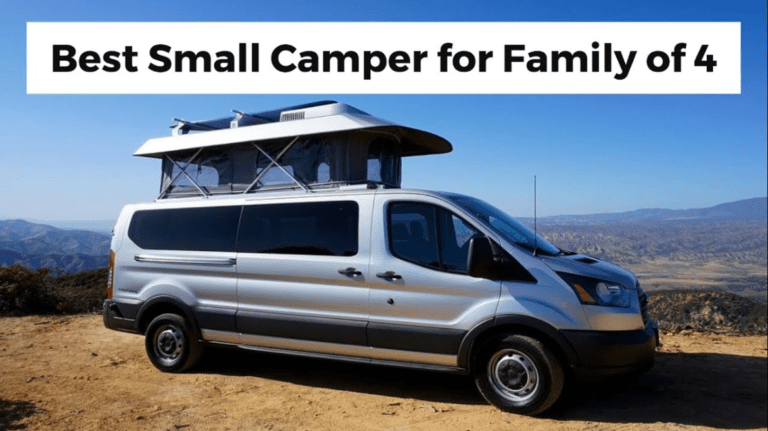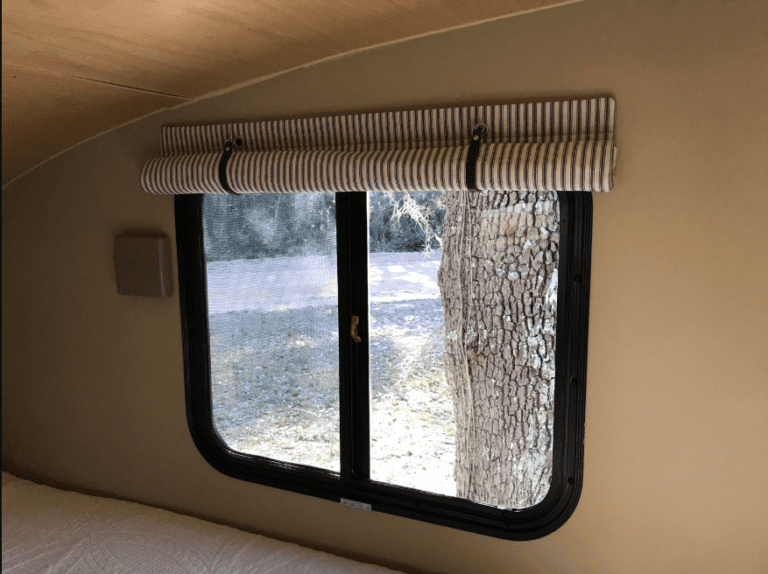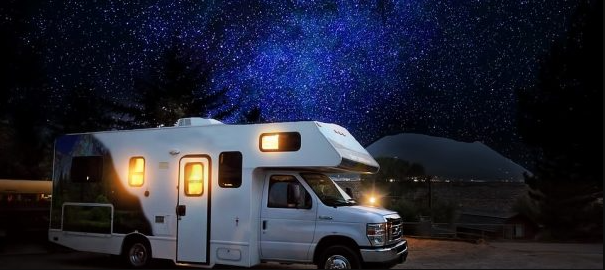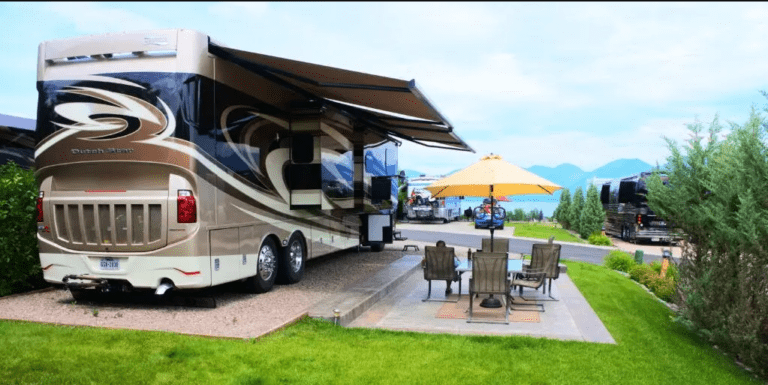Best RV Extended Warranty Companies
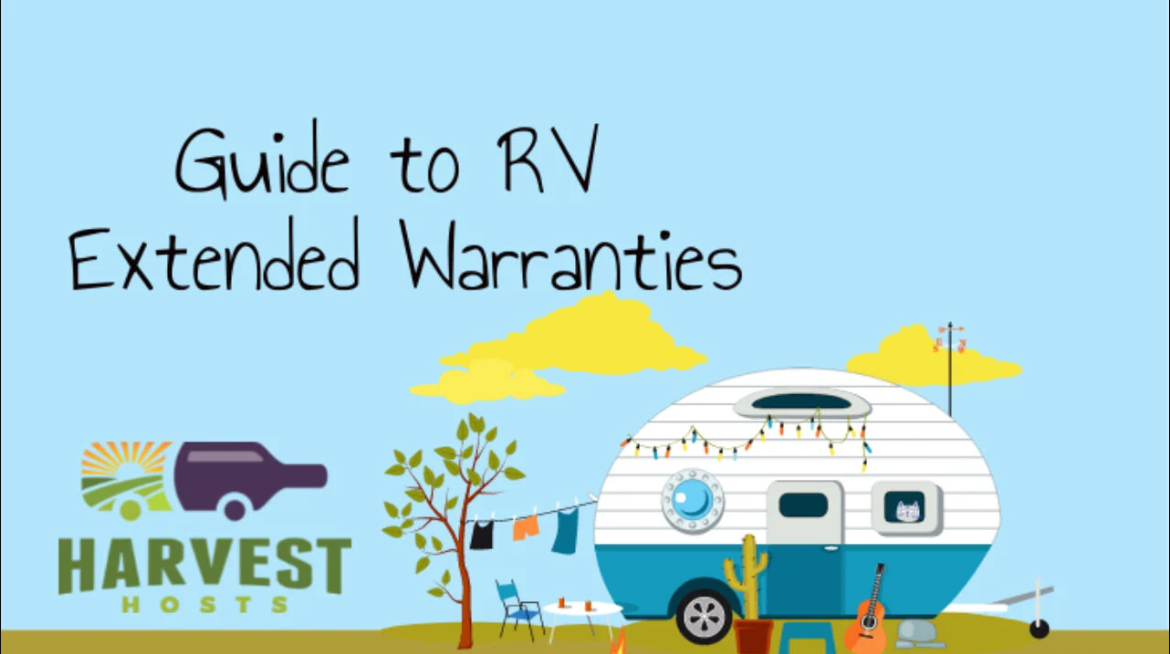
An RV warranty, also called a service plan or service contract, helps cover repair costs when the vehicle’s systems and equipment suffer mechanical breakdowns. Warranty plans cover motorhomes, travel trailers, 5th wheel trailers, toy haulers, and other types of RVs. We’ve researched the industry to bring you the best RV extended warranty companies.

Best RV extended warranty companies
America’s RV Warranty
America’s RV Warranty (ARW) offers RV warranties for drivable and towable RVs. They offer three plans, plus some optional coverage extras like power surges for drivable RVs. For trailers, they offer two plans and optional coverage. ARW is highly rated among RVers for several reasons. They allow coverage to be transferred to a new RV if you choose to sell yours and buy a new one. Finally, they don’t limit RVers to a few repair shops. When traveling, it can be a lifesaver to be able to get to the nearest certified mechanic.
- Accepts mobile mechanic repairs.
- 4 plans to meet any coverage requirements
- Compensation for loss of travel/fare/meals
- 24/7 claims and customer service representatives.
- Backed by a rated insurance carrier.
Good SAM extended service plan
Most RVers are familiar with the Good Sam Membership Club, but not many are aware that they also offer RV coverage. While not technically an extended warranty, the Good Sam Extended Service Plan has rave reviews among the RV community and works just as well. RVers pay a monthly rate with no contract to get base coverage for their motorhome, trailer, or even personal vehicle. Good Sam offers flexible deductibles and has no annual mileage restrictions. They also offer additional plans for roadside assistance and travel assistance.
- Flexible payment options
- Coverage is available in all 50 states and Canada.
- Plans are fully transferable.
- Travel expense reimbursement covers food, lodging, and car rental costs while the RV is in the shop.
- No roadside benefits are included with the coverage.
Eagle Vision
Eagle Vision is a new and small warranty company, yet it has many satisfied customers. They offer a variety of plans for motorhomes, towable, or diesel RVs, ensuring that every RVer can choose the best plan for their needs. Their basic plans cover the coach and chassis, but their add-ons can also cover travel expenses, rental vehicles, food spoilage, towing and more.
Wholesale warranty
Wholesale Warranty offers a variety of plans for many types of RVs. They may offer separate coverage for roadside assistance and tire/wheel coverage, as well as cover motorhomes, towable, and pop-up campers. For drivable RVs, they also offer three plans, ranging from coach-only to comprehensive or exterior coverage. For towable trailers, they also offer comprehensive or exclusionary coverage. Their roadside assistance package offers 24/7 towing, lockout assistance, or emergency fuel delivery.
RVING SOLUTIONS
- 2 plans to choose from
- Reimbursement of travel expenses, loss of food
- Delivery of Fuel/LP Gas
- 24/7 concierge service
About Warranties
For many travelers, an RV warranty provides peace of mind by covering RV repair costs for their recreational vehicle. A reputable company allows customers to use their coverage at any licensed repair facility in the United States or Canada.
Mechanical breakdown
A warranty covers repairs when items fail in their everyday function (the industry uses the term “mechanical breakdown”). RVs are essentially homes on wheels, and even well-built motorhomes face a lot of stress from their time on the road. Many owners also complain that RV manufacturers practice lax quality control standards in an effort to keep up with growing demand.
Warranty or service contract?
Technically, the warranty coverage offered by these companies is not a warranty at all—warranties by definition come directly from the manufacturer. A more accurate term is a vehicle service contract (some people also call them protection plans), but the companies on our list cover the same issues covered by a warranty.
Unlike a manufacturer’s warranty, an extended warranty is easy to customize and covers all items in the same period (with many RV manufacturer warranties, different items are covered for different periods).
RV warranty coverage details
Warranty coverage depends on the type of policy purchased. Customers can choose what level of coverage they want, and motorhome owners can choose to cover automotive components, coach components, or both. Items that are usually covered:
- engine
- Transfer
- Drive Excel
- Refrigerator
- Air conditioner (both cab and coach)
- Heating system (both cab and coach)
- Fresh water system
- Waste water system
- The generator
- Kitchen Center
- LP Gas Systems (Including Gas Valves)
- Slide out
- Water heater
- Deluxe Appliances (Ice Maker, Washer/Dryer, etc.)
Not the same as RV insurance.
Remember, extended service plans cover expenses related to mechanical components that break. This is different from RV insurance, which covers damage from accidents and weather.
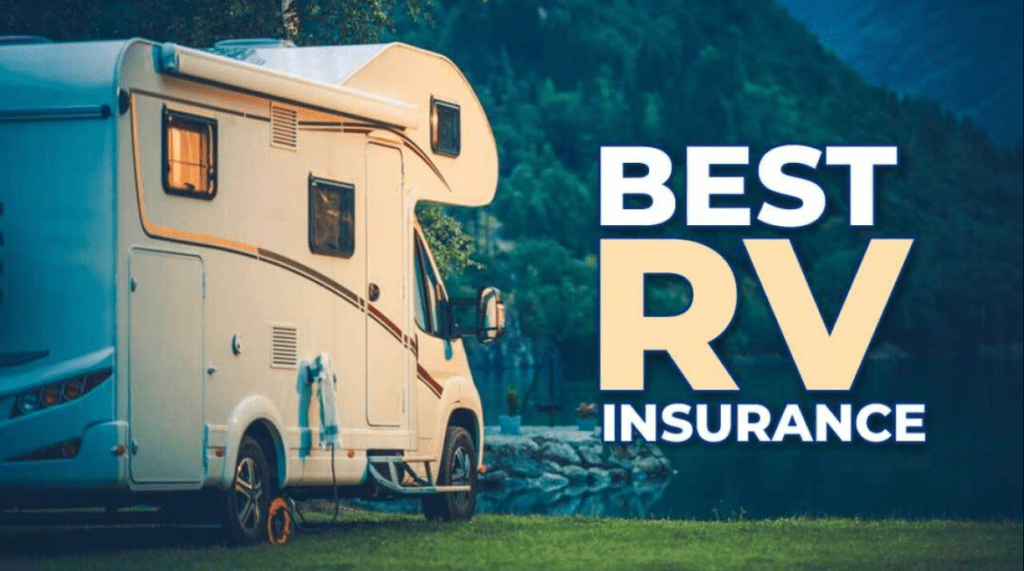
For example, an extended service plan like that offered by one of the companies below will cover the bill for a repair facility to fix the AC when it fails mechanically. , the thermostat or compressor may need to be replaced. If the rooftop AC unit is damaged by a fall, however, it will not be covered and will be an issue for the insurance company.
Some companies call their warranty “mechanical breakdown insurance coverage,” but their coverage is no different than other warranty companies.
Common optional coverages
These popular extra features provide added protection for your recreational vehicle.
- Wheels and Tires – Covers repair and replacement of wheels and tires if they are damaged on the road.
- Power Surge – Covers the cost of electrical or electronic items damaged by power surges.
- Commercial Use – Applies to units owned and operated by businesses.
- Navigation Package – Covers navigation equipment such as GPS system and satellite antenna, compass, electronic information display, and more.
What about roadside assistance?
RV warranty plans usually come with optional roadside assistance coverage. Compared to separately purchased roadside assistance plans, these plans are often offered at a discount, which can add up to big savings over time.
Common features of roadside assistance coverage include:
- Towing and/or winching
- Locksmith services
- LP Gas and Fuel Delivery – Fuel and other essentials will be delivered to get your RV moving again.
- Travel Expense Reimbursement – This helps cover food, lodging and transportation costs while your RV is in the shop.
- Concierge services
- Battery jump start service
- Mechanical First Aid – Minor fixes and adjustments to help get your RV back on the road.
- Tire Service – This service will install your spare tire in the event of a flat.
Types of Warranties
There are two main types of warranty plans: external coverage and designated component coverage.
Companies also offer additional coverage for tires, consequential damage, and more (see “Common Optional Coverages” above).
EXCLUSION WARRANTY
Exclusion policies provide a list of items and issues that are not covered. Anything not listed is covered by the policy. These policies cover more issues than listed component policies, and represent the most complete coverage the company offers.
Because of this, they usually cost more than listed component plans – how much depends on the company, vehicle and length of coverage.
Named Components Warranty
Compared to exclusionary policies, named component plans define coverage through an opposite approach: the policy lists the items and issues that are covered, and anything that is not listed is not covered. has gone
Because these plans cover fewer issues than exclusionary policies, it’s easy to list what’s covered. In general, named component warranties still offer solid, comprehensive coverage for both motorhomes and towable.
Named component policies are also sometimes referred to using the terms stated coverage and stated coverage.
Coach only
A coach-only warranty focuses on the living portion of the RV and excludes coverage for automotive items. The term “coach-only” applies only to motorhomes, as appreciable RVs lack automotive components such as the engine, transmission, brakes, cabin AC, and drivetrain.
Power train
The powertrain warranty covers engine, transmission, and drive axle components such as drive shafts. These are the items that generate and deliver the power that makes your motorhome the way you want it to be.
Manufacturer’s Warranty
When a manufacturer builds and sells a new RV, they usually include a warranty policy on the new unit. This policy protects the RV owner if items are damaged or improperly installed.
The length of warranties and the items covered vary from manufacturer to manufacturer, and some warranties are more limited in the issues they will cover than others. Depending on the manufacturer, different items on an RV may be under warranty for different lengths of time — something that is unique to manufacturer warranties. Extended warranties cover all items for the same period.
How to shop for warranty
To find affordable coverage that’s right for you, first decide what coverage features are most important to you and how much you’re willing to pay. Then you will find it easier to compare plans and companies.

Determine your coverage needs.
Ask yourself why you want coverage and what issues are of most concern to you. What will it take for you to have peace of mind while driving your RV?
If you’re worried about your motorhome breaking down on the side of the road and don’t know what to do, you’ll probably want a powertrain plan that includes roadside assistance. If you’re also concerned about everything inside the motorhome, you’ll want coverage for coach items as well.
Some RVers only worry about the most expensive items like the engine, transmission and suspension, while others rest easy knowing they have the most comprehensive coverage.
Here are some questions to ask yourself:
What things, problems, or situations bother you the most?
Will worrying about these issues affect how you use your RV?
Are you comfortable without tire and wheel coverage?
Do you need roadside assistance? Do you need the best roadside assistance plan?
Know your budget.
Decide how much you can responsibly spend on coverage. If you haven’t purchased your RV yet, it’s wise to consider the cost of maintenance and repairs (whether you plan to purchase coverage or self-insure) as part of the total cost of ownership. .
Most companies offer payment plans that spread payments over one or two years, although coverage is cheapest when the plan is paid in full at the beginning. Pricing and payment plan structures vary between companies.
When you have a budget in mind, it becomes easier to evaluate warranty products when you receive quotes.
Compare providers.
It’s time to make some phone calls. While basic plan information is available online and quotes can be emailed, the easiest way to find coverage is to talk to a salesperson. When gathering information, focus on the most important warranty factors:
- Monthly, Annual and Total Cost
- Deductible
- Number of items covered
- Coverage caps and limitations
- Additional benefits
- Optional add-on coverages
Cost and coverage are the two most important factors. Because companies offer different coverage lengths and slightly different coverage and benefits, it can be difficult to compare apples to apples. At a minimum, calculate the annual cost of coverage from each quote you receive.
The deductible reflects how much the customer pays at the time of the repair. When the warranty company covers the claim, the customer pays the repair facility a deductible and the warranty company take care of the rest. A lower deductible means customers pay less out-of-pocket for repairs.
Deductibles are usually charged for each visit to the repair facility, so some customers who need to have multiple problems fixed don’t have to pay multiple times.
A similar factor to consider is how much the plan pays for service fees for the mobile mechanic. Mobile Mechanics will repair your RV onsite when it’s down. They charge a service fee, sometimes called a trip charge, to cover travel expenses. Most companies help with this service fee: some pay up to $100 in fees, while others cover the entire cost.
To compare coverage, use the information above. At a glance, most warranty plans look similar, so it helps to read each plan’s agreement. These are available, or you can request one from a sales representative. The contract explains in detail how the coverage works and exactly what is covered.
Some planning features are standard in the industry. For example, coverage is usually no longer available after 100,000 or 150,000 miles. Other features only the best RV warranty companies offer, such as allowing repairs at any service center in the USA or Canada. The best companies are backed by insurance, which guarantees that even if the warranty is covered by the company that sold you, your policy will still be covered by an administrator who handles your policy claims. handles the
How we choose the best companies
Transparency
Because RV warranties are complex products, the companies with the most satisfied customers are the ones that honestly and openly disclose plan details, pricing, and coverage limitations and exclusions.
They generally answer questions honestly about the competition and the RV industry. We reviewed 11 companies and recommended companies that provide sample contracts and comprehensive details online. We also used mystery shoppers who pretended to be looking for used RV coverage, and those shoppers asked all kinds of tough questions about policies, claims,
Claims processing
How the warranty works is a big factor for us when you use it. We looked at the claims process from start to finish and reviewed providers that offer reasonable service fees and easy instructions. These companies allow sufficient time to notify customers of repairs if repairs were made without prior authorization.
We also took into account the relationship between each company and the administrator, the ease of the claims process with each company, and how each company handles problems and errors.
Because there are multiple parties involved—the customer, the service center, the administrator, and the warranty company—a company that has a close relationship with its administrator and their customer will provide the best experience and savings.
Coverage options
Flexible coverage allows you to get the coverage you need. The companies we recommend offer a range of choices for coverage levels, deductibles, and/or payment options. Beware of salespeople who won’t explain the different coverage options: They may be trying to sell you a plan that works for their paycheck, but not for your needs. Our mystery shoppers asked a lot of questions about the different coverage options, the differences between policies, and the cost of all the policies involved.
Customer service
Companies with good communication and 24/7 customer support provide excellent customer service. We read reviews and spoke with repair facilities and service representatives to learn how the RV warranty industry works and which practices offer the best results for RV owners.
Additional benefits
Who doesn’t like extra benefits? Roadside assistance benefits and discounts on equipment, services and memberships provide additional perks for RVers, and the best companies have more to offer than just their warranty coverage.
Buying an RV Extended Warranty
If you’re buying an RV, one thing you’ve probably thought about is the RV’s extended warranty. Most new RVs will come with a manufacturer warranty, usually good for one year. Although few manufacturers offer RV warranties beyond the first year, if you’re interested in longer coverage, your only option is to purchase an RV extended warranty.
Deciding to purchase an RV extended warranty is all about risk tolerance. You are gambling that the amount you pay for the warranty will be less than the cost of the repairs that the warranty covers. For example, you’ve purchased a seven-year RV extended warranty, and during that time, you don’t have any significant issues or need for warranty repairs. Your decision to purchase an RV extended warranty may not seem like a very wise one. However, let’s say you’ve made several major repairs to your RV during the same period, totaling $10,000. Then, your decision to purchase an RV extended warranty may be the smartest decision you’ve ever made.
No one can predict the future, but you can use your tolerance for risk to determine whether you want an extended RV warranty. Some people just like to be assured that if there is a major problem or multiple problems, they have a warranty to help them weather the storm. Instead, others will take the money they would have spent on an extended warranty, put it in a savings account, and pay cash for the repair.
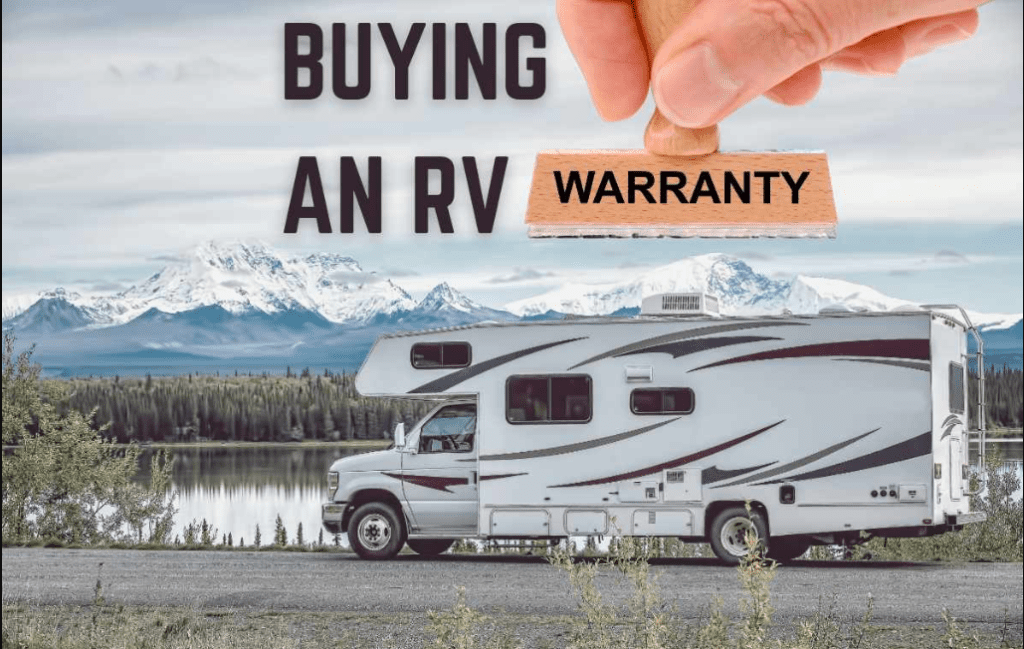
Buying an RV can be one of the most expensive purchases of your life. They are expensive, and so are the components, equipment, and mechanical systems that make them work. If you have a problem, repairs can be expensive. Does this mean you should get an extended warranty? Not necessarily, but you should plan to fix problems and pay as they arise. If you own an RV and use it for a long period of time, you will most likely need to make repairs.
Chances are you’ve Googled “is an RV extended warranty worth it.” I bet most people are shopping for the first time. This includes me. However, there is no RV owner or authority that can answer this question for you. Only you can decide if it’s worth it. Every piece of information you come across will be someone’s opinion. For every person who says no, it’s not worth it, there will be another person who says the opposite.
Where is the best place to buy an extended warranty?
I’m starting to cover that question in this article because I think the answer is as important as whether or not you should buy one. You may be surprised at how few search results you get if you Google “list of RV extended warranty companies.” If you do the same for extended car warranties, you’ll have the opposite experience. The fact of the matter is that there aren’t many direct-to-consumer RV extended warranty providers. Most RV extended warranty providers work directly with RV dealerships or online brokers.
The reality is that most people who purchase an RV extended warranty will do so from a dealership when they finalize their RV purchase. While this may sound like a good idea, it’s more of a convenience than something that makes financial sense for the buyer. RV dealerships will offer inflated RV extended warranty plans as a way to increase their profits. Dealers will usually factor the cost of the warranty into the financing price of the RV to make it look more attractive. However, if you look at the total cost you’re paying for an RV extended warranty through the dealer, you’ll inevitably pay a lot more for the same warranty you could purchase yourself.
The truth about dealer-purchased RV extended warranties is that the product they offer, usually from the same underwriter, is equivalent to a third-party warranty. Another downside to buying a warranty from a dealer is that you don’t have much time to research what it covers. By taking your time and shopping for it yourself, you’ll be able to learn a lot about the details of an extended warranty and decide whether or not it’s right for you. An extended RV warranty can cost you thousands of dollars more if purchased from a dealer.
So, if you don’t buy an RV extended warranty through an RV dealer, where can you get one? Fortunately, you have several great options. While you won’t find as many choices for extended car warranties, there are specialized warranty businesses that can help you find the right product for your needs. Below is a short list of the more popular RV extended warranty providers.
- Wholesale warranty
- Eagle Vision
- America’s RV Warranty
- Good SIM extended service plan
Choosing the Right RV Extended Warranty Company
The best advice I can give for choosing an RV extended warranty company is to read reviews from real RV owners. Reviews will give you some real-world examples of how well the company has solved problems or repairs experienced by RV owners. It’s best to avoid focusing on the lowest and highest review scores and instead focus on the reviews in between. You should also avoid companies with a high number of low scores. This low score may indicate a more significant problem with the company. Also, remember that most people will take the time to review if they have a negative experience. Similarly, most people will not take the time to write a review if they are generally satisfied with a company or product.
Another important thing to consider when choosing an RV extended warranty provider is to take the time to talk to them about their products, support, and how they can help you resolve issues when they arise. While this review will not review every company above, it will give you some basic information on what to look for when choosing an extended warranty.
Many of the companies above will offer similar products and, in some cases, competitive prices. It can be difficult to make a choice based only on reviews or information found on their website. My best advice is to find a well-established company with a solid reputation and extensive experience in the RV extended warranty business. In my opinion, the best choice if you are looking for a recommendation is a wholesale warranty.
Why Wholesale Warranty?
Wholesale Warranty is the largest provider of RV extended service contracts. Wholesale Warranties is the industry’s leading provider of RV extended warranties, specializing in the sale of established and fully insured service contracts to the RV community. They have been in the game for a long time and have a solid reputation as RV warranty experts in the industry. One of the key factors that allows them to stand out from the competition is their exceptional customer service, which is highlighted by their ability to demonstrate significant growth over the past decade.
Wholesale Warranty is an agile company that covers the basics you want in an RV extended warranty provider. They offer a fair price for industry leading coverage. They can provide products that compete with dealership offerings at lower prices because their overhead is much lower. They have a small but dedicated staff. They also don’t have to worry about non-warranty things like RV inventory, finance, or IT departments, which would come standard with owning a dealership. In this sector, their savings are passed on to consumers. They built their business by focusing on competitive pricing and outstanding customer service. They have solid backing from insurers, which is what you want in an RV extended warranty provider. Their well-established insurance backers have over $200 billion in assets, giving you the assurance that your warranty is fully insured.
One of the best reasons to choose Wholesale Warranty is their staff. As a customer, you will have the opportunity to work directly with their knowledgeable, friendly RV warranty specialists, who are highly trained in the industry. They also have an in-house customer advocacy department that will facilitate questions on claims, coverage, or even speak directly with your repair facility and warranty company to resolve any issues. Their staff will ensure that you feel comfortable with the coverage you have purchased and enjoy the peace of mind that the RV warranty promises. You will see what I described above if you give them a phone call to ask about warranty coverage. They will not pressure you into signing a contract. Instead, they’ll help you make the best decision for purchasing coverage—whether it’s with another provider or your local dealer. You can click here to get a free quote and chat with their RV warranty experts, no strings attached.
Extended RV warranties can be confusing, so it’s important to work directly with people who understand them. The staff at Wholesale Warranties knows the details of every service contract they offer. They will provide you with all the information you need to file a claim with your extended warranty when you need it. If you lose that information after six months, just contact them with questions. Their RV warranty specialist will provide clear communication and assistance in filing a claim if you need them, including contacting the RV warranty company as well as your repair facility or RV service center. They work with new RVers entering the RV lifestyle and provide several years of coverage for both new and used RVs (for various model years) made by most RV manufacturers.
Wholesale Warranties pride themselves on their customer service and offering quality products that they stand behind. So, when you have a problem in the future, you will be glad to have them with you. This is why I recommend them as the best RV extended warranty option for RV owners, providing the best coverage for all types of RVs. Wholesale Warranty has an excellent online reputation, with a 4.9 Google review rating. Additionally, they have an A+ rating with the Better Business Bureau (BBB). Read customer reviews of Wholesale Warranties here.
Wholesale Warranty just launched a new program: Adventure Shield.
Adventure Shield provides coverage for RVs that are very old. For motorhomes, coverage is available for 20 model years or less with less than 100K miles. In addition, you can get coverage for towable RVs for models 15 years or newer. Both listed components and exclusions policies are available with add-ons for consequential loss and commercial use (including short-term rentals).
RV Extended Warranty vs. Insurance
The RV Extended Warranty will cover repair costs for mechanical breakdowns that do not result from physical damage. This coverage differs from an RV insurance policy, which typically covers repairs/expenses caused by theft, collision, or physical damage. If you own a new RV, you want both an insurance policy and an extended warranty. If you’ve financed your RV, you’ll most likely get insurance and keep it active for the life of the loan. RV extended warranties are often optional. There are numerous options available to find good insurance companies.
What is included in the RV extended warranty?
RV extended service contracts include mechanical breakdown coverage, which means that if something breaks, it’s usually covered. However, RV extended service agreements will not cover conditions or problems that pre-existed prior to purchase of warranty coverage.
An RV’s extended warranty also will not cover routine maintenance or items considered “wear and tear.” You should maintain the RV with roof seals, water damage, and tire maintenance. If you purchase an extended warranty after owning the RV, you may require an inspection if it is no longer new. Most RV extended warranty companies will consider an RV new within the first year of ownership under the original manufacturer’s warranty. It is always important to read the fine print of all warranty policies (including making sure coverage is available outside the United States).
Not every RV extended warranty is the same. When considering purchasing coverage, the first step is to identify what options are available for your RV and determine what type of coverage you want to purchase. There are a few main types of RV extended warranties available, with different options for towable RVs such as travel trailers or 5th wheels (and toy haulers) and motorhomes with engines. The coverage you choose may depend on the type of RV you own. You can also get coverage for unique setups, like tiny homes or horse trailers.
Types of RV Extended Warranty Coverage
Exterior RV Extended Warranty
EXCLUSION RV EXTENDED WARRANTIES ARE ONLY: EXCLUSION. That is, the warranty company offers buyers a list of specific repair or maintenance issues that are not covered. Then, everything else, not listed, is eligible for repair. This may include things like the fuel system and fuel injectors, which may not be part of a powertrain-only warranty.
Excluded plans provide the most extensive coverage, meaning they are usually the most expensive. However, you have more coverage with an outside policy, which provides peace of mind and includes more covered repairs. When considering an exclusionary warranty, it’s important to talk to a warranty specialist about what items are excluded from coverage. This exclusion list usually includes everything that is considered wear and tear, collision damage, weather, or poor maintenance. In addition, several other items are generally excluded, such as paint and carpet.
Listed Components RV Extended Warranty
Listed component RV extended warranties are essentially the reverse of exclusion policies. Instead of providing a list of things that aren’t covered, you’ll get a list of things that are covered. Repair or maintenance issues outside of the allowable list are generally not covered under warranty.
Although less comprehensive than exclusionary policies, listed component RV extended warranties are generally more affordable. However, the list of covered items is quite comprehensive, typically including mechanical components such as your engine and powertrain (for motorhomes) and appliances, electrical faults, heating and cooling components, slide-outs, leveling systems, etc. Included. More affordable warranty coverage and covering larger and more expensive components is a good option for some people. When choosing a listed component warranty, it’s important to go over all coverages with a warranty specialist so you can be sure the items you’re most concerned about are covered.
Powertrain Only RV Extended Warranty
If you have a drivable RV, you may want to consider the Powertrain Only RV Extended Warranty. As the name implies, this coverage will only protect your powertrain components, including your engine, transmission, and drive axle. Because coverage is relatively limited, motorhome warranties are often more affordable. They are a cost-effective option for motorhomes as drivetrain components can be expensive. If you had to replace the diesel engine in your RV, the repair alone could cost $20,000-$40,000. This warranty is also a great option for motorhome owners who want to fix most failures themselves. By continuing to repair small items yourself, you can save yourself from costly failures. If you have a Class A, Class B, or Class C motorhome, a powertrain-only warranty may be the best option for your extended warranty plan.
Coach contract only
The last type of coverage, if you have a motorhome, is to reverse the powertrain warranty only. You will cover the coach components (not the powertrain) in this example. This option is usually selected if the manufacturer’s warranty still covers your motorhome’s engine or if your motorhome’s mileage makes it ineligible for powertrain and engine coverage.
Other considerations to make when choosing an RV extended warranty provider:
Contract Insurance
Price alone should not be your deciding factor. You may find a small startup company that offers you a slightly lower price for your warranty coverage. However, if that company goes out of business, you want to make sure your warranty investment is still valid. It’s best to make sure a reliable insurance company backs up your RV extended warranty agreement administrator. For example, wholesale warranty policies are backed by “A” rated insurance carriers, who have proven staying power and financial stability. Not only do you want to have a good experience with your carrier when purchasing a policy, but you also want to know that when you’re out on the open road, they’ll be available to help you avoid any costly repairs.
Obtaining warranty service
An RV extended warranty is only helpful if you can get service when you need it or if you experience a mechanical breakdown. So, when choosing a warranty company, you should always think about follow-up support when needed. Additionally, you should look for companies that offer after-purchase support rather than just a good deal.
You should research how the warranty company and repair facility handles warranty claims. Ideally, the warranty provider should pay for the repair directly, without you paying anything upfront and then trying to get reimbursed. However, if this is not the case, you should look elsewhere for reliable coverage.
Wholesale Warranty prides itself in this department, which is one of the main reasons I recommend them. Here’s how they describe the warranty service process:
- Bring your vehicle: You can bring your recreational vehicle to any licensed repair facility in the US or Canada.
- Get pre-authorization: The best way to handle repairs is to have your repair shop diagnose the problem and contact your RV warranty company to get pre-authorization for any needed RV repairs. Without prior authorization, your claim will not be covered!
- Pick up your RV, but not the bill—that goes to your warranty company. What you have to take care of is your deductible! Wholesale warranty plans are not reimbursement plans, so you don’t have to dip into your savings or max out your credit cards to get back on the road. Instead, you can drive off in your repaired RV and leave the bill to your RV warranty company!
With wholesale warranties, you can take your vehicle to any licensed RV repair facility in the U.S. A certified repair facility is a facility that only works on RVs in business and has a valid business license. The ID number is
Transfers and cancellations
An extended warranty is an investment. If you choose to sell your RV or trade it in for a new one, you want to make sure you don’t lose the value of your RV extended warranty. Look for companies, such as Wholesale Warranty, that will pay you a reasonable fee if you decide to transfer your service as part of the sale, transfer coverage to a new RV, or cancel your coverage. Allow compensation for
A few quick tips
- Look for companies with at least a B rating that are backed by an insurance company. Beware of low-quality extended warranties backed by risk retention groups. All the companies on our list are backed by rated insurers.
- Choose a company that is accredited by the Better Business Bureau® (BBB). All companies on our list have recognized BBB business profiles.
- Older or high-mileage RVs may not be eligible for all types of coverage or coverage from all companies.
- A reputable company will allow RV repairs at any qualified service center in the US or Canada.
Deductions
Deductibles for warranty coverage are similar to the deductibles you’re probably familiar with through your insurance policies. Many warranty programs will have deductibles, and their amount, just like with insurance, can increase or decrease your overall price. A piece of advice – look for coverage that has a deductible per visit, not per item. For example, if you need warranty service for four different components, you’ll ideally want to pay one deductible when you take it in for service, not a separate deductible for each item. Talk to the warranty provider about this when purchasing coverage.
RV inspection
RV extended warranty providers will usually require an inspection on the RV unless it is new (usually less than a year old). An inspection will identify any pre-existing conditions that would be excluded from coverage. An inspection is also a helpful tool for you. This ensures that you know what will be covered and won’t have to fight with a provider over a pre-existing condition (or determining what part of it is covered). Inspections can cost you a few hundred dollars, so be sure to ask about that when inquiring about coverage. Inspections will look at many aspects of the RV, including water heaters, air conditioners, slides, refrigerators, etc.
Benefits
Many will offer additional benefits along with extended warranty coverage. These benefits may include roadside assistance, road hazard coverage, accommodation payments, emergency repair arrangements, travel expense reimbursements, and other optional coverages. Ask the warranty provider about additional benefits and what conditions are associated with them, such as caps and service providers, and if there is an additional cost for service.
Are they necessary?
An extended warranty is an optional purchase. They are not absolutely necessary or mandatory, but they can be very helpful. I have personally saved thousands of dollars in very expensive repairs, saving me from paying out of pocket suddenly and unexpectedly.
RV repairs to the house or chassis are almost always very expensive. Specialized RV mechanics who can work on Class A or C chassis are usually more expensive than a regular mechanic. Any repairs that need to be done to the coach portion of your RV (think refrigerator, AC, roof, electrical, etc.) can be more expensive than normal repairs due to the special nature of RVs. For example, many regular electricians will not inspect or fix any RV problems because they are not certified to do so. In most cases, the extended warranty will not only cover the cost of the repair, but also the cost of the broken item.
Result
While extended RV warranties may not be right for everyone, they can be a great resource for individuals who value peace of mind when owning an RV. Not all RV extended warranties are the same. Likewise, every RV extended warranty provider is different. It would be best to research your supplier, perhaps even more than the actual warranty coverage. A good warranty provider will explain everything about the coverage you are purchasing, assist you before the sale, and offer assistance if you need to get service.

